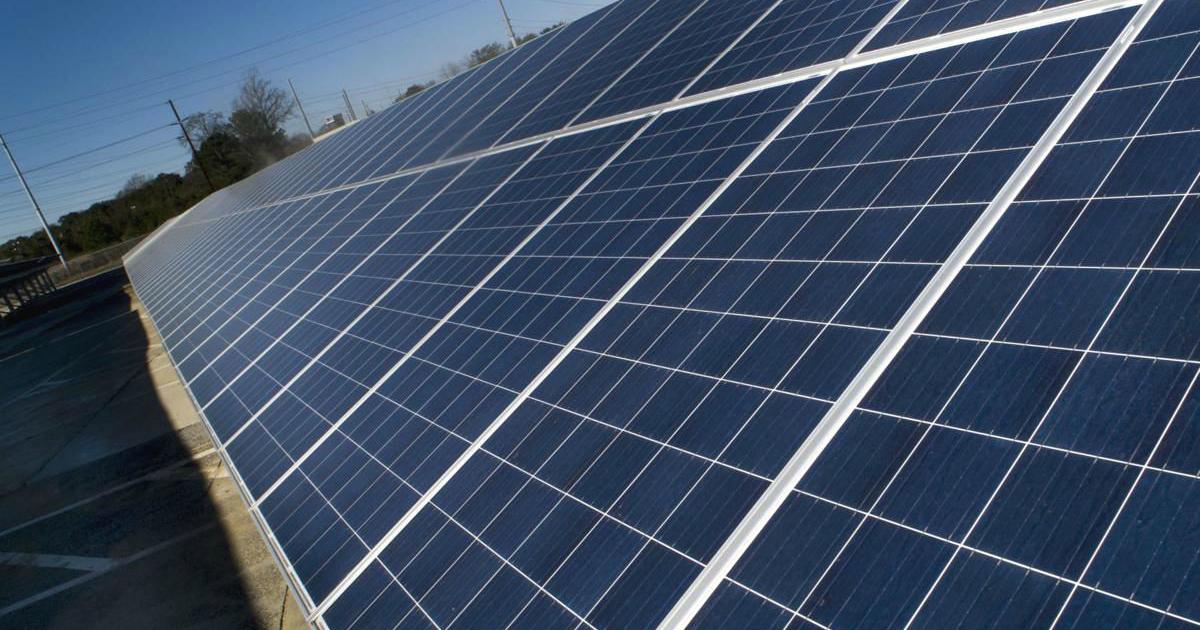Nearly $4 billion in federal money has been awarded to more than 860 projects in South Carolina. But now the Trump administration’s funding freeze has caused uncertainty among recipients working on clean energy, public safety and resilience initiatives.
Funding for these projects is coming from the Infrastructure Investment and Jobs Act of 2021 and the Inflation Reduction Act of 2022 signed into law by President Joe Biden.
President Trump’s executive order “Unleashing American Energy” put things on hold, which some experts claim is an illegal overreach of executive power. A federal judge on Jan. 31 ordered the administration to release the funds, but the administration is not complying fully, releasing only some of the money.
“It’s still sort of a mess right now, so there’s not a lot of clarity around what may or may not get cut,” said Katie Zimmerman, executive director of Charleston Moves.
Most people seem to think the projects that have already received funds likely will resume after Trump lifts the freeze, Zimmerman said. The projects that have not been contracted could be cut. No new projects are being considered through these programs at this time.
The nationwide project count, compiled by the nonprofit climate news organization Grist, reveals where hundreds of billions of dollars of funding, authorized by these two bills, were awarded across the country.
Most of South Carolina’s projects are being funded through the Bipartisan Infrastructure Law. These projects include repairing bridges and roads, expanding clean energy infrastructure and access, making cities more resilient and addressing public safety issues.
A smaller number of projects in South Carolina are being funded through the Inflation Reduction Act, focusing on clean energy, conservation, environmental remediation and climate resilience.
Trump is targeting what his administration pejoratively calls “green new deal social engineering policies.” Among his goals is a rollback of environmental and climate-related initiatives implemented by his predecessors. Precisely how that rollback will play out is unclear but could include defunding sustainability projects, federal incentives for electric vehicles (including school buses) and the development of energy sources that don’t rely on fossil fuels.
Projects focused on electric vehicles already have been impacted. Electric vehicle battery plants announced delays in the weeks following the freeze. The state’s Department of Transportation has paused projects through the BIL-funded National Electric Vehicle Infrastructure (NEVI) program, SCDOT spokesperson Hannah Robinson said.
The NEVI program would expand the state’s network of electric vehicle charging stations. Other SCDOT projects haven’t been affected, she said.
Some other projects’ funds have been frozen in the last few weeks.
Among them is a nearly $11.4 million project through the Sustainability Institute, funded by the Environmental Protection Agency. The project will build 10 affordable homes in North Charleston’s Union Heights neighborhood and fund repairing and weatherizing 50 existing homes in the community, The Post and Courier previously reported.
The institute already has received EPA funding and started the project on Jan. 1. Bryan Cordell, the institute’s executive director, said funding was frozen, unfrozen and then refrozen within the last few weeks, but he expects the project to continue.
“We are sort of working off the assumption that those funds will not be frozen and that our work will not be paused in any way,” he said.
Project recipients around the state still are waiting to see what happens but the uncertainty has consequences, said Alys Campaigne, climate initiative leader at the Southern Environmental Law Center.
“The uncertainty means that we’re losing out on the benefits,” she said. “We’re losing momentum in a state that is suffering from significant, severe climate impacts.”

